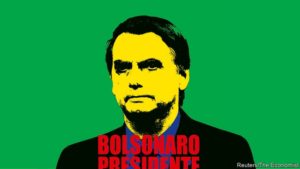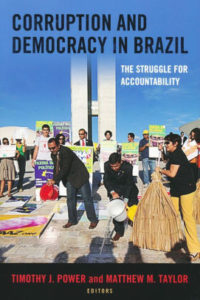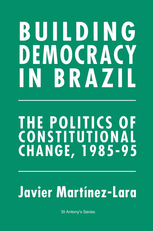
Economist
This October, Brazilians will go to the polls to elect a new president, and the country could become the next democracy to fall in the populist wave that has been sweeping the globe. Jair Bolsonaro, a far-right nationalist member of Congress known for making racist and chauvinistic comments, is currently leading in many polls and may very well win a second-round runoff, according to Eduardo Mello, Assistant Professor of Politics and International Relations at Fundação Getulio Vargas, Brazil.
 At first glance, it may seem strange that a country once hailed as one of the most inclusive democracies in the developing world could elect a president who has openly attacked the rights of gay people, women, and Afro-Brazilians and who has been an apologist for military dictatorship and torture. Yet Bolsonaro’s rise makes sense when one considers the backdrop of Brazil’s culture of political corruption, he writes for Foreign Affairs:
At first glance, it may seem strange that a country once hailed as one of the most inclusive democracies in the developing world could elect a president who has openly attacked the rights of gay people, women, and Afro-Brazilians and who has been an apologist for military dictatorship and torture. Yet Bolsonaro’s rise makes sense when one considers the backdrop of Brazil’s culture of political corruption, he writes for Foreign Affairs:
For decades, the generation of leaders that oversaw the transition from military dictatorship dominated Brazilian politics. But the establishment of democracy was not about sweeping aside the corrupt institutional landscape that had been created by the dictatorship. Rather, it was an exercise in reconciling popular demand for political openness while upholding the benefits of vested interest  groups that had flourished under military rule. Although the 1988 constitution provided for universal suffrage for the first time in Brazil’s history, it also gave politicians a way to game the system. Permissive regulations allowed incumbents to use the powers of office to raise money in corruption schemes and use the funds in lavish political campaigns and vote-buying.
groups that had flourished under military rule. Although the 1988 constitution provided for universal suffrage for the first time in Brazil’s history, it also gave politicians a way to game the system. Permissive regulations allowed incumbents to use the powers of office to raise money in corruption schemes and use the funds in lavish political campaigns and vote-buying.
The massive corruption revealed by Brazil’s “Operation Car Wash” points to fundamental flaws in multiparty presidential systems, where presidents must find ways to build coalitions in fragmented legislatures, Mello and Matias Spektor observe in the NED’s Journal of Democracy.
But the crisis also represents an opportunity for reformers to promote a positive agenda, based on strengthening democratic institutions and promoting accountability, Mello suggests. RTWT







